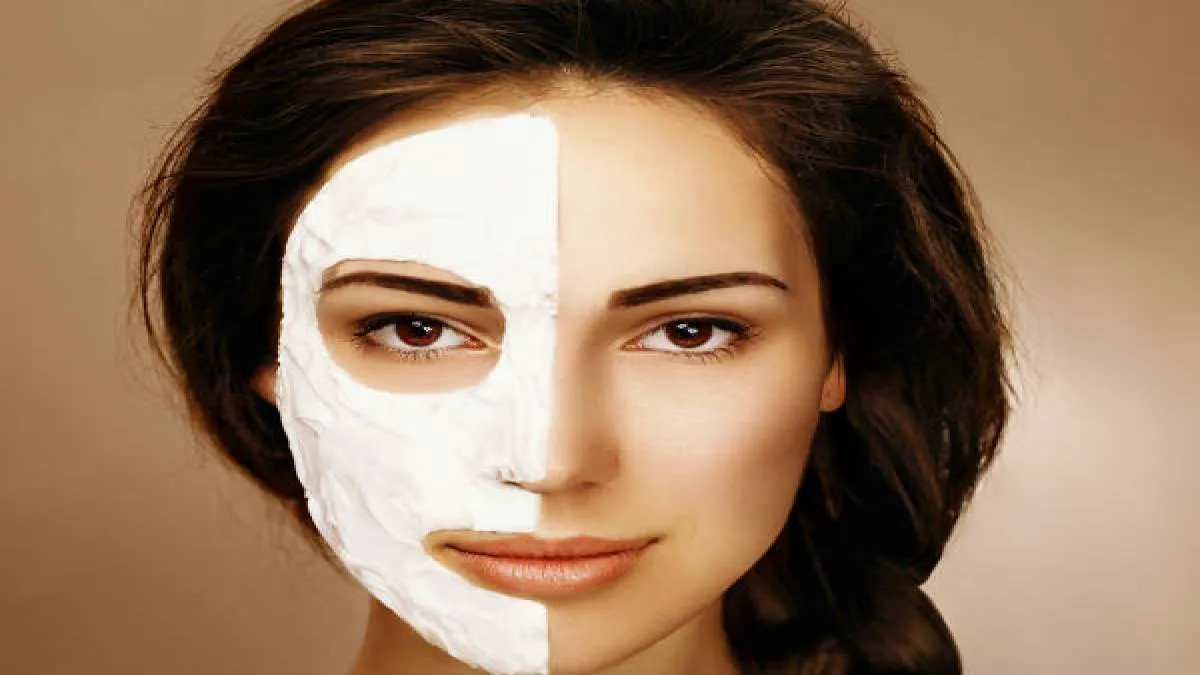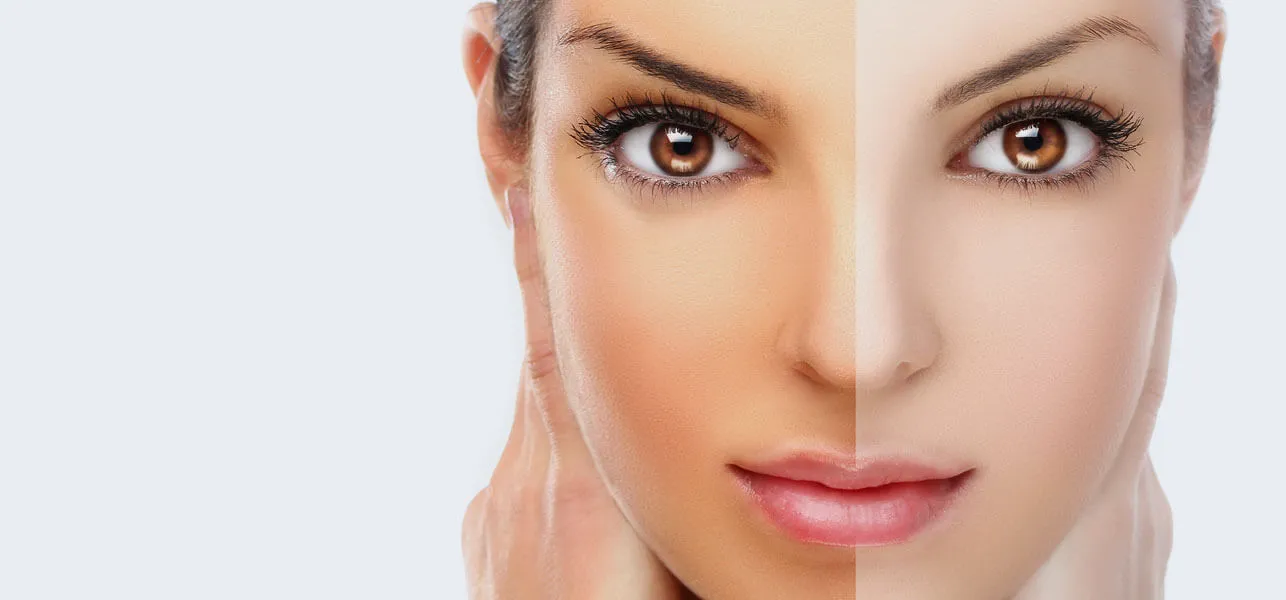Understanding Face Whitening What It Means
Face whitening, often used interchangeably with skin brightening, is a skincare practice aimed at lightening the skin tone or achieving a more even complexion. This can involve reducing dark spots, hyperpigmentation, and overall skin discoloration. It’s essential to understand that face whitening is not just about altering skin color; it’s also about enhancing skin health and achieving a radiant, glowing appearance. The process can vary significantly depending on the methods and products used, ranging from over-the-counter creams to professional treatments. The goal is to achieve a brighter, more luminous complexion while maintaining skin health and protecting it from damage. Many people seek face whitening solutions for various reasons, including addressing sun damage, acne scars, or uneven skin tone. Regardless of the reason, it’s crucial to approach face whitening with informed decisions and consult with skincare professionals to ensure safety and efficacy.
The Science Behind Skin Whitening
The science behind skin whitening revolves around the melanin pigment, which determines skin color. Melanin is produced by melanocytes, specialized cells in the skin. When these cells are overactive, they produce excess melanin, leading to dark spots or uneven skin tone. Skin whitening products and treatments work by targeting these melanocytes or inhibiting melanin production. Ingredients such as hydroquinone, kojic acid, and vitamin C interfere with the enzyme tyrosinase, which is crucial for melanin synthesis. Other methods involve exfoliating the skin to remove dead cells containing melanin, thereby revealing a brighter complexion. Understanding the biological processes of melanin production helps in selecting appropriate treatments and managing expectations. It’s important to remember that skin whitening is not a permanent solution and requires ongoing maintenance to sustain results. Furthermore, the effectiveness of these methods can vary depending on individual skin types, the degree of pigmentation, and consistent use of the products.
Factors That Affect Skin Tone

Several factors influence skin tone, including genetics, sun exposure, hormonal changes, and skin conditions. Genetics play a significant role in determining the baseline skin color, with individuals from different ethnic backgrounds exhibiting varying levels of melanin. Sun exposure is a major contributor to skin darkening, as UV radiation stimulates melanin production to protect the skin from damage. Hormonal fluctuations, such as during pregnancy or menopause, can lead to melasma, a condition characterized by dark patches on the face. Skin conditions like acne, eczema, and psoriasis can cause inflammation and, subsequently, post-inflammatory hyperpigmentation. Other environmental factors, such as pollution and exposure to certain chemicals, can also affect skin tone. Recognizing these factors helps in identifying the root causes of uneven skin tone and tailoring skincare routines accordingly. A comprehensive approach, including sun protection, proper skincare, and, if needed, professional treatments, is essential for managing these factors and achieving a brighter, more even complexion.
Common Ingredients in Face Whitening Products
Many ingredients are used in face whitening products, each with different mechanisms of action and potential effects. Hydroquinone is a potent skin-lightening agent that inhibits melanin production, but it has been associated with side effects like ochronosis, a darkening of the skin. Kojic acid is another ingredient derived from fungi, which also inhibits tyrosinase. Vitamin C, a powerful antioxidant, not only brightens the skin but also protects it from environmental damage and promotes collagen production. Arbutin, a natural derivative of hydroquinone, is considered a gentler alternative. Niacinamide, a form of vitamin B3, helps reduce inflammation and even out skin tone by reducing the transfer of melanin to skin cells. Retinoids, derived from vitamin A, promote cell turnover and can reduce the appearance of dark spots. When selecting products, it is crucial to read labels carefully and be aware of the potential side effects and benefits of each ingredient. Consulting a dermatologist can help determine which ingredients are best suited for your skin type and concerns.
Hydroquinone The Controversial Ingredient
Hydroquinone has been a subject of controversy due to its potential side effects. While it is highly effective in reducing hyperpigmentation, long-term use can lead to ochronosis, a condition characterized by bluish-black discoloration of the skin. The U.S. Food and Drug Administration (FDA) has classified hydroquinone as a potentially harmful ingredient. In some countries, hydroquinone is banned or restricted in over-the-counter products. Due to these concerns, many people are seeking safer alternatives. Before using any hydroquinone product, it’s vital to consult with a dermatologist, especially if you plan to use it for an extended period. Dermatologists can monitor your skin for adverse reactions and adjust your treatment accordingly. If hydroquinone is used, it is usually recommended in low concentrations under medical supervision and combined with other ingredients to minimize side effects. The decision to use hydroquinone should be made with a thorough understanding of its risks and benefits.
Alternatives to Hydroquinone Safe & Effective Options

Several safe and effective alternatives to hydroquinone are available for skin whitening. Kojic acid, derived from fungi, is known for its skin-lightening properties and is often gentler than hydroquinone. Vitamin C, a powerful antioxidant, can brighten the skin, reduce dark spots, and protect against environmental damage. Arbutin, a natural derivative of hydroquinone, is considered a milder option and works by inhibiting tyrosinase. Niacinamide (vitamin B3) helps reduce inflammation, evens skin tone, and can improve the skin barrier function. Azelaic acid, another option, is effective in treating acne and reducing hyperpigmentation, and is often well-tolerated. Plant extracts such as licorice extract and bearberry extract also contain compounds that can lighten the skin. When choosing alternatives, look for products with multiple active ingredients for enhanced effectiveness. Consult a dermatologist to determine which alternatives are suitable for your skin type and concerns, as the most effective approach often involves a combination of different ingredients and skincare practices.
Natural Remedies For Face Whitening
Many natural remedies can help lighten and brighten the skin, often with fewer side effects than chemical treatments. These remedies typically involve ingredients found in your kitchen or garden. These methods are often gentle, making them suitable for those with sensitive skin. The effectiveness of natural remedies can vary, and it may take time to see results. Consistency is crucial when using these remedies. It’s also important to test any new treatment on a small area of skin first to check for allergic reactions or irritation. While natural remedies offer a gentler approach to skin whitening, they may not be as potent as professional treatments. However, they can be a valuable part of a comprehensive skincare routine, especially when combined with other strategies like sun protection and a healthy lifestyle.
Lemon Juice and Honey
Lemon juice contains citric acid, which has natural bleaching properties and can help reduce dark spots and brighten the skin. Honey acts as a natural humectant, moisturizing and soothing the skin. Combining lemon juice and honey creates a simple, effective face mask. To use this, mix equal parts of fresh lemon juice and honey. Apply the mixture to your face, avoiding the eye area. Leave it on for 15-20 minutes, then rinse thoroughly with lukewarm water. Because lemon juice can make your skin more sensitive to the sun, it’s crucial to apply sunscreen afterward. This mask can be used once or twice a week for best results. If you experience any irritation, discontinue use immediately. Before applying to the entire face, it’s recommended to perform a patch test on a small area of skin to check for allergic reactions.
Turmeric and Yogurt

Turmeric is renowned for its anti-inflammatory and antioxidant properties, helping to even out skin tone and reduce blemishes. Yogurt contains lactic acid, which acts as a gentle exfoliant, removing dead skin cells and promoting a brighter complexion. Combining turmeric and yogurt creates a face mask that can improve skin tone and texture. To make this mask, mix one teaspoon of turmeric powder with two tablespoons of plain yogurt. Apply the mixture evenly to your face and leave it on for 15-20 minutes. Rinse with lukewarm water and pat your face dry. Use this mask one to two times a week. Be cautious, as turmeric can stain the skin yellow, so it is important to rinse thoroughly. If staining occurs, you can use a gentle cleanser to remove any residue. The combination of turmeric and yogurt is suitable for most skin types, but a patch test is always recommended.
Aloe Vera for Skin Brightening
Aloe vera is known for its soothing and healing properties, and it can also help brighten the skin. It contains vitamins, minerals, and antioxidants that promote skin health and can reduce hyperpigmentation. To use aloe vera for skin brightening, apply fresh aloe vera gel directly to your face. If you do not have a fresh aloe vera plant, you can use a high-quality aloe vera gel from a store. Massage the gel onto your face and leave it on for 15-20 minutes. Rinse with cool water. Aloe vera can be used daily as part of your skincare routine. It’s particularly beneficial after sun exposure due to its soothing properties. Aloe vera also helps to hydrate the skin, which can contribute to a more radiant appearance. Aloe vera is generally safe for all skin types, but a patch test is recommended if you have sensitive skin.
Daily Skincare Routine For Face Whitening
A consistent daily skincare routine is crucial for achieving and maintaining a brighter complexion. This routine should include cleansing, exfoliating, moisturizing, and sun protection. Start by cleansing your face twice a day with a gentle cleanser suitable for your skin type. Exfoliate one to three times a week to remove dead skin cells and reveal brighter skin. Use a moisturizer to keep your skin hydrated, and always apply sunscreen with an SPF of 30 or higher every morning, even on cloudy days. If you use face whitening products, incorporate them into your routine as directed. Always follow the instructions on the product labels. Consistency is key; you need to stick to your routine for results. Consider adding serums or other treatments based on your skin’s needs and the specific products you are using. A well-rounded daily skincare routine not only helps with face whitening but also improves overall skin health and appearance.
Cleansing Exfoliating and Moisturizing

Cleansing is the foundation of any skincare routine. Use a gentle, pH-balanced cleanser to remove impurities, oil, and makeup without stripping your skin of its natural oils. Exfoliation helps remove dead skin cells, promoting cell turnover and revealing a brighter complexion. Choose a gentle exfoliator appropriate for your skin type; avoid harsh scrubs that can cause irritation. Moisturizing is essential for keeping the skin hydrated, which helps maintain its plumpness and glow. Look for moisturizers with ingredients like hyaluronic acid, glycerin, and ceramides. These ingredients help lock in moisture and improve the skin’s barrier function. Apply your cleanser, exfoliator, and moisturizer in the correct order, ensuring each product has time to absorb before applying the next. Doing these steps consistently forms the basis of a healthy and effective skincare routine.
The Importance of Sun Protection
Sun protection is the most crucial step in any face whitening routine. UV rays stimulate melanin production, which can worsen dark spots and uneven skin tone. Use a broad-spectrum sunscreen with an SPF of 30 or higher every day, even on cloudy days. Reapply sunscreen every two hours, or more frequently if you are swimming or sweating. Sunscreen not only protects your skin from further damage but also helps maintain the results of your face whitening treatments. Choose a sunscreen that suits your skin type. Look for products that contain zinc oxide or titanium dioxide, as these are effective mineral sunscreens. Avoid prolonged sun exposure and wear protective clothing, hats, and sunglasses. Sun protection is not just about preventing further skin damage; it also helps the skin to heal and regenerate, promoting a healthier and brighter complexion. Incorporate sunscreen into your daily routine to protect your skin from premature aging and sun damage.
Diet and Lifestyle For Glowing Skin
What you eat and how you live can significantly impact your skin’s health and appearance. A healthy diet rich in vitamins, minerals, and antioxidants provides the essential nutrients that support skin health. Regular exercise improves blood circulation, delivering oxygen and nutrients to the skin cells, contributing to a radiant complexion. Adequate sleep allows the body to repair and regenerate, promoting skin health. Avoiding smoking and limiting alcohol consumption can also improve skin health. Reducing stress levels through relaxation techniques like yoga or meditation helps prevent skin issues, as stress can worsen skin conditions. Adopting healthy habits, such as drinking plenty of water, helps to keep the skin hydrated and improves its overall appearance. Taking care of your overall well-being supports your face whitening efforts and contributes to a healthy, glowing complexion.
Foods to Include in Your Diet

Certain foods are particularly beneficial for skin health. Incorporate fruits and vegetables rich in vitamins and antioxidants into your diet. Berries, such as blueberries and strawberries, are packed with antioxidants that protect against free radicals and promote a healthy glow. Citrus fruits like oranges and lemons provide vitamin C, which is essential for collagen production and skin brightening. Leafy greens, such as spinach and kale, are rich in vitamins and minerals that support skin health. Include healthy fats like avocados and nuts, which provide essential fatty acids that keep the skin moisturized and supple. Drink plenty of water to keep your skin hydrated and support overall health. Foods that are high in protein, such as lean meats, fish, and beans, are essential for building and repairing skin cells. A balanced diet ensures your skin gets all the nutrients it needs to be healthy and radiant.
Lifestyle Changes to Consider
Making specific lifestyle changes can significantly improve your skin’s health and contribute to face whitening. Avoid smoking, as it damages collagen and elastin, leading to premature aging and dull skin. Limit alcohol consumption, as it can dehydrate the skin and cause inflammation. Reduce your stress levels through exercise, yoga, meditation, or other relaxation techniques, as stress can exacerbate skin issues. Get enough sleep each night, as sleep allows your body to repair and regenerate skin cells. Drink plenty of water to hydrate your skin from the inside out. Regularly exercise to improve blood circulation, delivering oxygen and nutrients to your skin. Protect your skin from sun exposure by wearing sunscreen, hats, and protective clothing. Following these simple lifestyle changes can dramatically improve your skin’s appearance and overall health, supporting your face whitening goals and promoting a brighter, more radiant complexion.
Potential Risks and Side Effects of Face Whitening
Face whitening treatments and products can carry potential risks and side effects. Some ingredients, like hydroquinone, can cause skin irritation, redness, or ochronosis. Other products may contain steroids that can lead to skin thinning, acne, and other complications. Laser treatments carry risks such as burns, scarring, and changes in pigmentation. Before undergoing any face whitening treatment, it’s essential to consult a dermatologist. They can assess your skin type, discuss the potential risks, and recommend appropriate treatments. Always use products as directed and stop using them immediately if you experience any adverse reactions. Be aware that some treatments may not be suitable for all skin types, and some may not be effective. It is crucial to make informed decisions and to discuss any concerns or side effects with a qualified professional.
Consulting a Dermatologist

Consulting a dermatologist is crucial for anyone considering face whitening treatments. A dermatologist can assess your skin type, identify any underlying skin conditions, and recommend the safest and most effective treatments. They can also provide guidance on product selection, discuss the potential risks and benefits of various treatments, and monitor your skin for any adverse reactions. If you have any pre-existing skin conditions or concerns, a dermatologist can provide personalized advice and treatment plans. They can also help you manage your expectations and set realistic goals. A dermatologist is the best resource for making informed decisions about your skin health. Regular check-ups and follow-up appointments can ensure your skin whitening efforts are both safe and effective. Always seek professional advice before starting any new skincare regimen.
How to Maintain Your Results
Maintaining the results of your face whitening efforts requires a consistent skincare routine and lifestyle changes. Continue using a gentle cleanser, exfoliator, and moisturizer. Protect your skin from sun exposure by wearing sunscreen with an SPF of 30 or higher every day. Regularly apply sunscreen, even on cloudy days, and reapply it every two hours. Maintain a healthy diet rich in vitamins and antioxidants. Drink plenty of water to keep your skin hydrated. Avoid smoking and limit alcohol consumption. Reduce stress levels through relaxation techniques. Continue any treatments or use any products recommended by your dermatologist. Be consistent with your skincare routine and lifestyle habits for long-lasting results. Regular check-ups with your dermatologist can help you adjust your routine and address any emerging issues. Maintaining a healthy lifestyle and skincare routine is essential for keeping your skin bright and glowing long-term.
Long-Term Skin Care Tips
Long-term skincare involves more than just face whitening; it’s about overall skin health and wellness. Prioritize a consistent daily skincare routine. Incorporate products with antioxidants like vitamin C and E to protect your skin from free radicals. Regularly exfoliate to remove dead skin cells. Stay hydrated by drinking plenty of water. Maintain a balanced diet rich in vitamins and nutrients. Avoid harsh chemicals and fragrances. Get enough sleep, as it is essential for skin repair and regeneration. Manage your stress levels through relaxation techniques. Consult your dermatologist regularly for skin check-ups and advice. Protect your skin from sun exposure by using sunscreen daily. Long-term skincare is about adopting a holistic approach that encompasses proper cleansing, hydration, protection, and a healthy lifestyle. By following these tips, you can achieve and maintain healthy, glowing skin for years to come.
